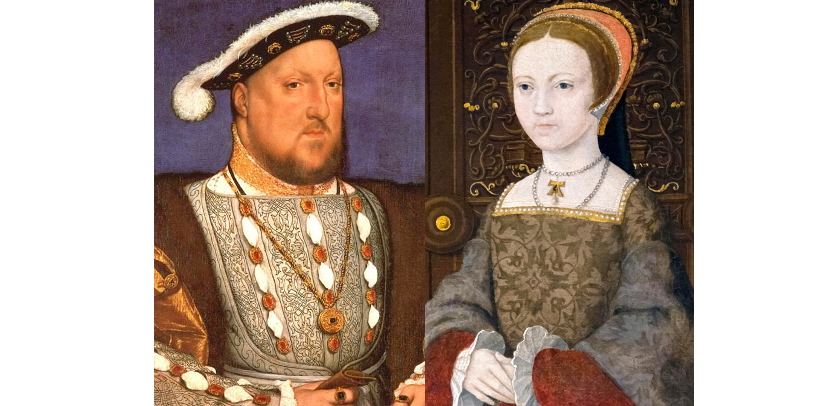It has long been assumed that in the months following the execution of her mother, Anne Boleyn, Elizabeth was out of favour with her father, Henry VIII. This has largely been based on a letter written by Sir John Shelton, comptroller of Elizabeth’s household, to Thomas Cromwell in August 1536:
‘I perceive by your letter the King’s pleasure that my lady Elizabeth shall keep her chamber and not come abroad, and that I shall provide for her as I did for my lady Mary when she kept her chamber.’
The fact that Elizabeth was ordered to ‘keep her chamber,’ and the explicit comparison to Mary’s treatment when she was out of favour, does suggest that Elizabeth indeed was in disfavour with her father.
Certainly there was confusion over how to treat Elizabeth; earlier in the month, her lady mistress, Margaret Bryan, wrote to Cromwell for guidance on how Elizabeth was to be treated:
‘Now, as my lady Elizabeth is put from that degree she was in, and what degree she is at now I know not but by hearsay, I know not how to order her or myself, or her women or grooms.’
And in all the confusion, there had been some neglect to Elizabeth’s clothing and expenses:
‘I beg you to be good lord to her and hers, and that she may have raiment, for she has neither gown nor kirtle nor petticoat, nor linen for smocks, nor kerchiefs, sleeves, rails, bodystychets, handkerchiefs, mufflers, nor ‘begens.’
It does seem that Cromwell did arrange for money to be sent for Elizabeth’s ‘raiments,’ and there were no further issues of Elizabeth’s necessities being neglected, so it was probably an oversight in all the confusion, rather than a deliberate slight towards the child.
In fact, Margaret Bryan’s letter gives context to John Shelton’s:
‘Mr. Shelton would have my lady Elizabeth to dine and sup every day at the board of estate. It is not meet for a child of her age to keep such rule.’
Elizabeth was just shy of 3 years old, very young to be thrust into public view constantly. Shelton had taken much pleasure in his role of comptroller of the household of the heir, and he was reluctant to see things change. It seems that on Bryan’s request, Cromwell ordered Shelton to no longer allow Elizabeth to ‘sup…at the board of estate,’ as it was inappropriate both for a child of such a young age, and one who was no longer considered legitimate. In this light, Shelton’s letter seems more petulant whining, rather than a legitimate reflection of Henry’s attitude towards his younger daughter.
Two small mentions suggest that Henry did in fact feel much more tenderly toward Elizabeth than is generally perceived. Mary certainly seemed to have reason to believe that Henry would want to hear praise of Elizabeth when she wrote to him that:
‘my sister Elizabeth is well, and such a child toward, as I doubt not but your Highness shall have cause to rejoice of in time coming.’
The other reference to Henry and Elizabeth’s relationship at this point is in a letter written to the French ambassador, Cardinal du Bellay by the Earl of Derby. Derby observed that:
‘Madame Ysabeau is not at that table (at court), though the King is very affectionate to her. It is said he loves her much.’
As discussed above, Elizabeth was too young to undertake a public role, especially now that her official status had been demoted, so it is not surprising that she was not at the banquet table beside her older sister Mary.
Of course, it is impossible to know precisely what Henry felt for Elizabeth in 1536; however, there are reasons to think that he still loved the young, innocent child, and did not cast her into disfavour at the same time as her mother.





